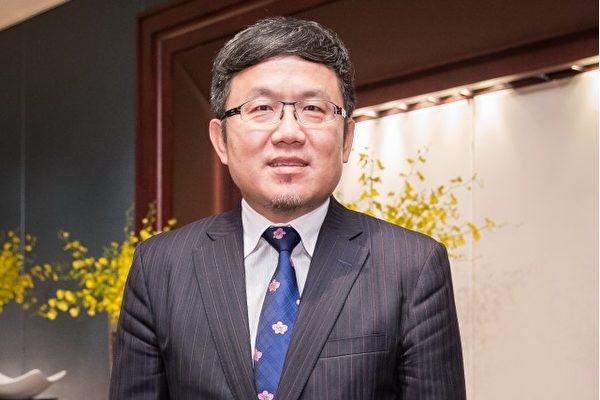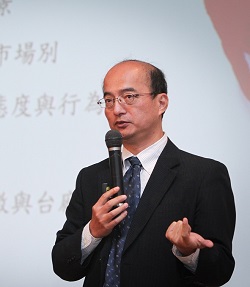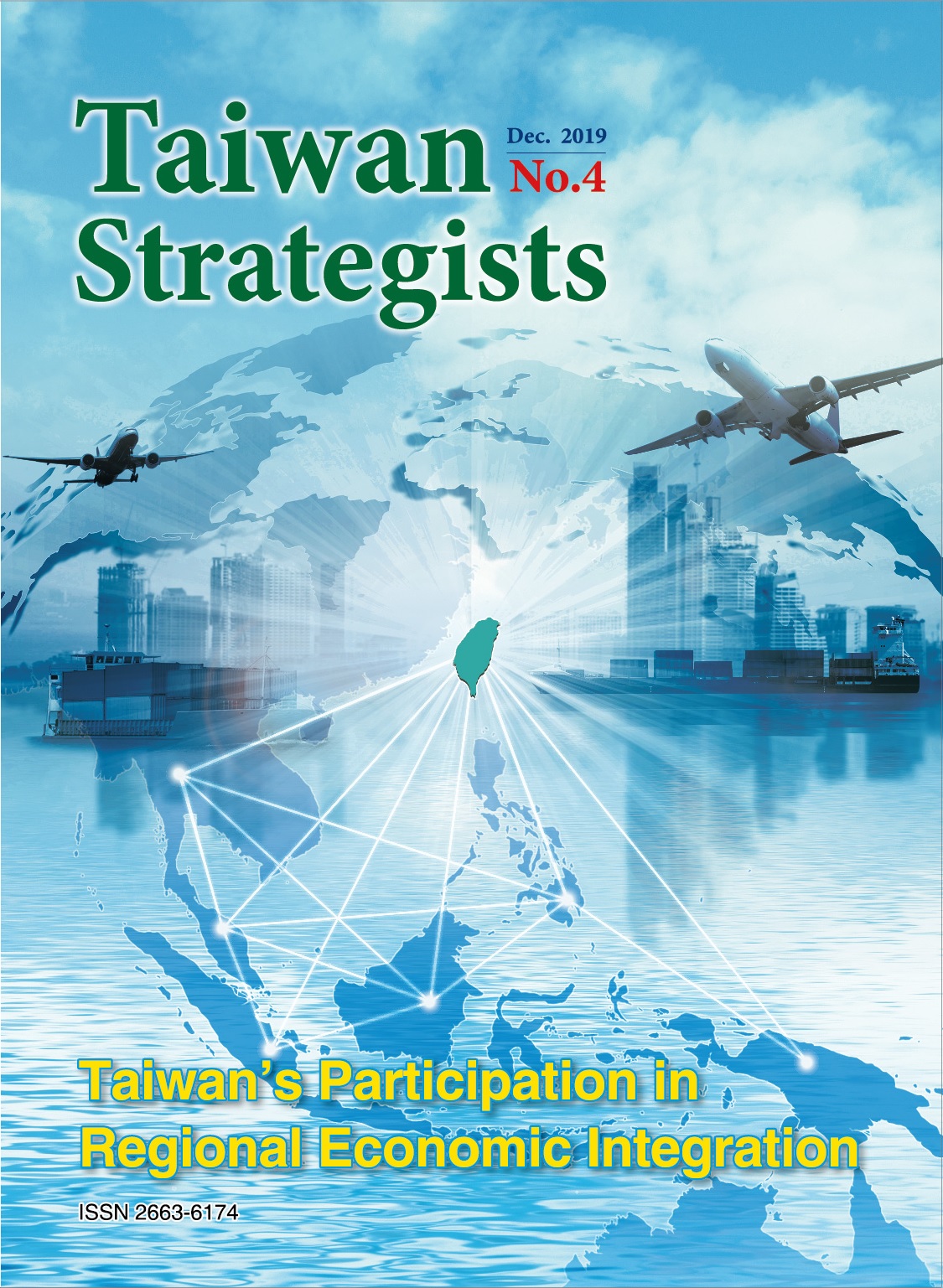Taiwan's Participation in Regional Economic Integration
- PDFThe U.S.-China Trade Confrontation and Taiwan’s New Southbound Policy An Economic Security Perspective.PDF
- PDFThe U.S.-China Trade War and Its Implications for Taiwan’s Economic Structure.PDF
- PDFThe Trade Frictions Between Japan and South Korea and Their Implications for Taiwan An Economic Perspective.PDF
Taiwan Strategists No.4 (December 2019)
The U.S.-China Trade Confrontation and Taiwan's New Southbound Policy: An Economic Security Perspective
Vice Chairman, Taiwan External Trade Development Council
This paper starts by working back to the origins of cross-Strait economic relations and highlights the great debate in Taiwan society about the need to normalize cross-Strait trade and investment. It also pinpoints the structural changes to China's investment environment that have led to a gradual retreat of Taiwanese businesses from its market. The outbreak of the U.S.-China trade friction last year only accelerates such a trend. In order to react to the structural evolution of cross-Strait economic relations, the Tsai Ing-wen administration not only sees it as a challenge to Taiwan's economic security but also has adopted measures to deal with it. The “New Southbound Policy” introduced by the Tsai administration more than two years ago was a manifestation of Taiwan's strategic attempt to diversify its trade and investment to other emerging markets, as well as its pursuit of a balanced, fairer, and reciprocal cross-Strait relationship.
Keywords: New Southbound Policy, Trade War, Economic Security, Innovation Diplomacy, Warm Power
The U.S.-China Trade War and Its Implications for Taiwan's Economic Structure
President, Taiwan Institute of Economic Research
In response to the potential uncertainties caused by the U.S.-China trade war, China-based Taiwanese businesses returning to Taiwan have surged. It is unlikely that this returning investment trend be a short-lived one, but rather this trend will bring about concrete investments and become a main source of funding for innovative industries. Additionally, a new value chain structure, a non-Chinese based structure, has gradually formed, and in the future Taiwan will play a very important role in this new value chain structure. Taiwan needs a new growth engine to boost industrial development and economic dynamism. This paper seeks to analyze and suggest macroeconomic strategies for Taiwan in the face of the ongoing U.S.-China trade war and, in particular, formulate strategies for Taiwan's economic and industrial development. Taiwan should accelerate the pace of industrial upgrading and try to construct a new, more flexible production structure, more professional and advanced, than the Chinese supply chain. At the same time, challenges and opportunities for returning Chinabased Taiwanese businesses should be analyzed. It is also important to strengthen the capability of technology protection for Taiwanese businesses in the future to prevent the outflow of Taiwanese technologies to China.
Keywords: U.S.-China Trade War, Global Supply Chain, Economic and Industrial Development, Taiwan's Economic Structure, Technology and Innovation
The Trade Frictions Between Japan and South Korea and Their Implications for Taiwan: An Economic Perspective
Chung Hua Institution for Economic Research
In July 2019, Japan announced an amendment to its export control policy and procedures of certain high-tech exports destined to South Korea, and then further downgraded South Korea's status as a trusted trading partner. South Korea filed a complaint to the World Trade Organization claiming Japan's tightened policies “unjustifiable” and are out of “political considerations,” in retaliation for South Korean supreme court rulings demanding that Japanese companies should compensate South Korean nationals forced into wartime labor during the second world war. The incidents soon spilled over into security arena as the South Korean government announced that it would not renew an intelligence-sharing agreement with Japan. The trade dispute is the first dispute between two of Asia's largest and most successful economies after the escalating U.S.-China trade dispute. Japan is widely regarded as adopting unilateral trade measures for non-economic reasons. As Japan is the largest or a major exporter of the three critical chemicals in particular, Japan's stringent export controls raise important legal issues on the interpretation of the WTO rules. South Korean fears of the disruption of supply chains reflect emerging concerns for economic security if multilateral trade rules are not respected.
Keywords: Trade War, Export Control, Global Supply Chain, WTO, Dispute Settlement





